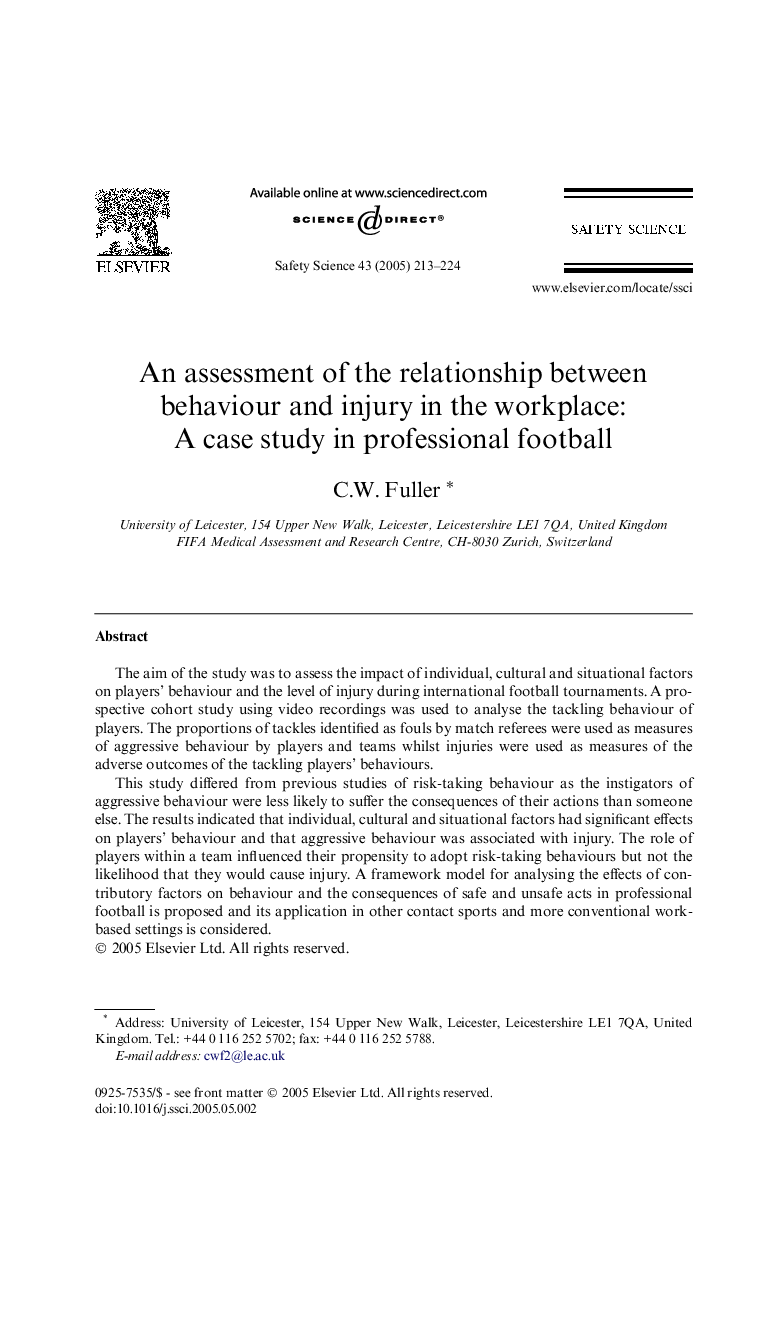| Article ID | Journal | Published Year | Pages | File Type |
|---|---|---|---|---|
| 10374368 | Safety Science | 2005 | 12 Pages |
Abstract
This study differed from previous studies of risk-taking behaviour as the instigators of aggressive behaviour were less likely to suffer the consequences of their actions than someone else. The results indicated that individual, cultural and situational factors had significant effects on players' behaviour and that aggressive behaviour was associated with injury. The role of players within a team influenced their propensity to adopt risk-taking behaviours but not the likelihood that they would cause injury. A framework model for analysing the effects of contributory factors on behaviour and the consequences of safe and unsafe acts in professional football is proposed and its application in other contact sports and more conventional work-based settings is considered.
Keywords
Related Topics
Physical Sciences and Engineering
Chemical Engineering
Chemical Health and Safety
Authors
C.W. Fuller,
